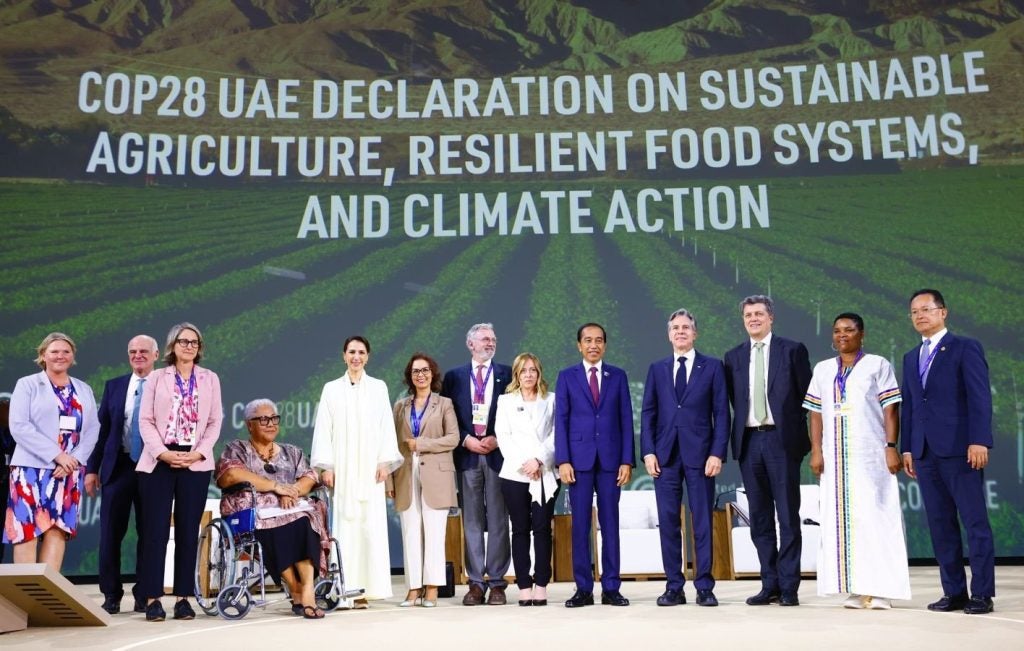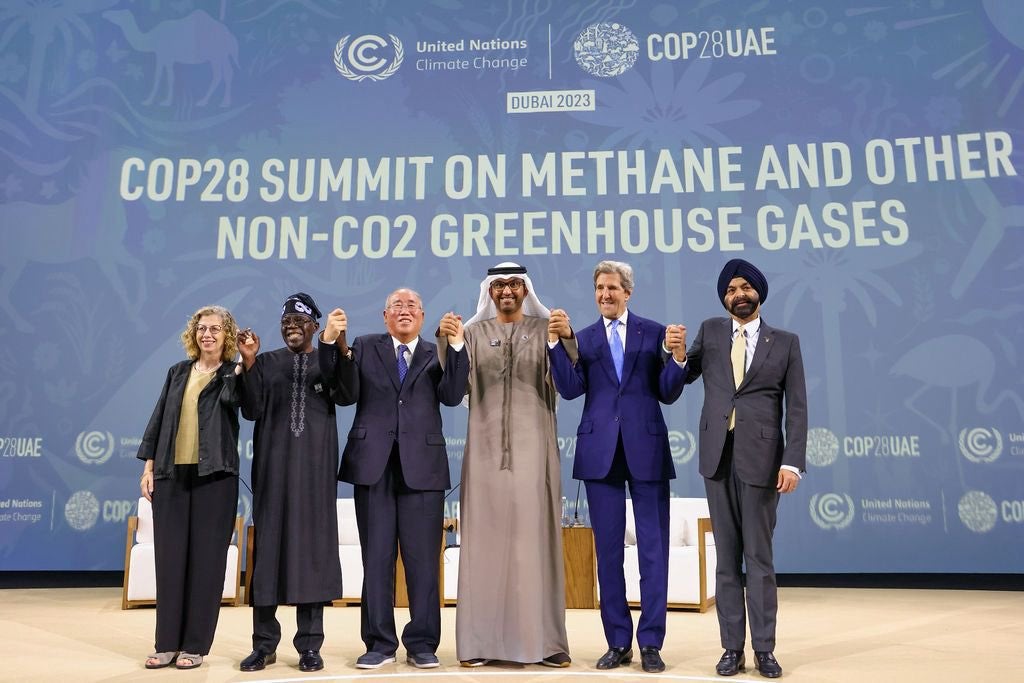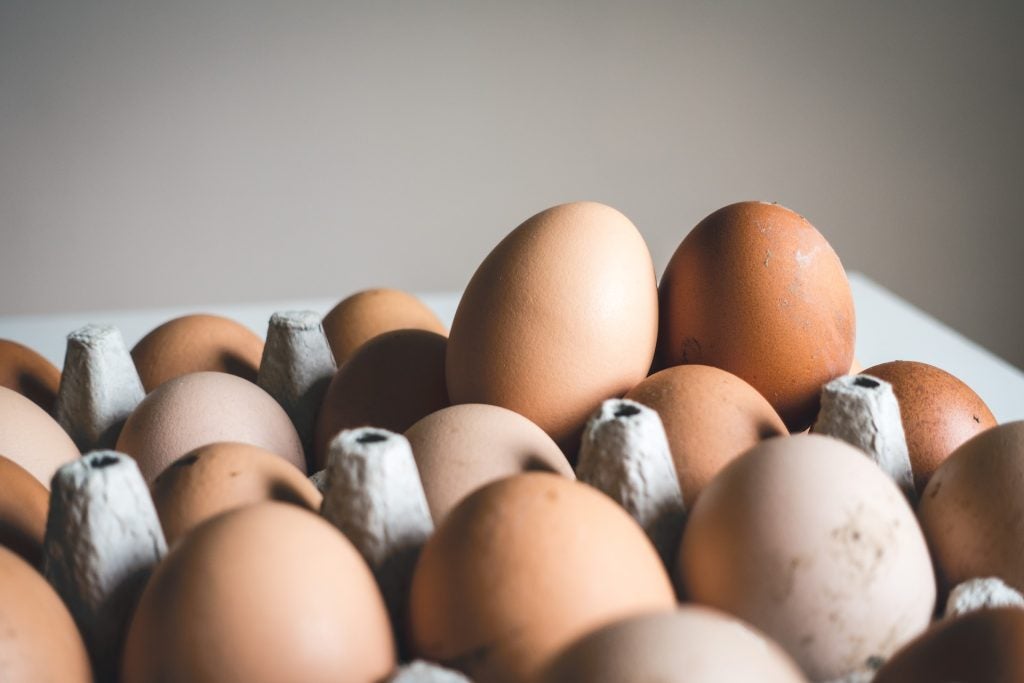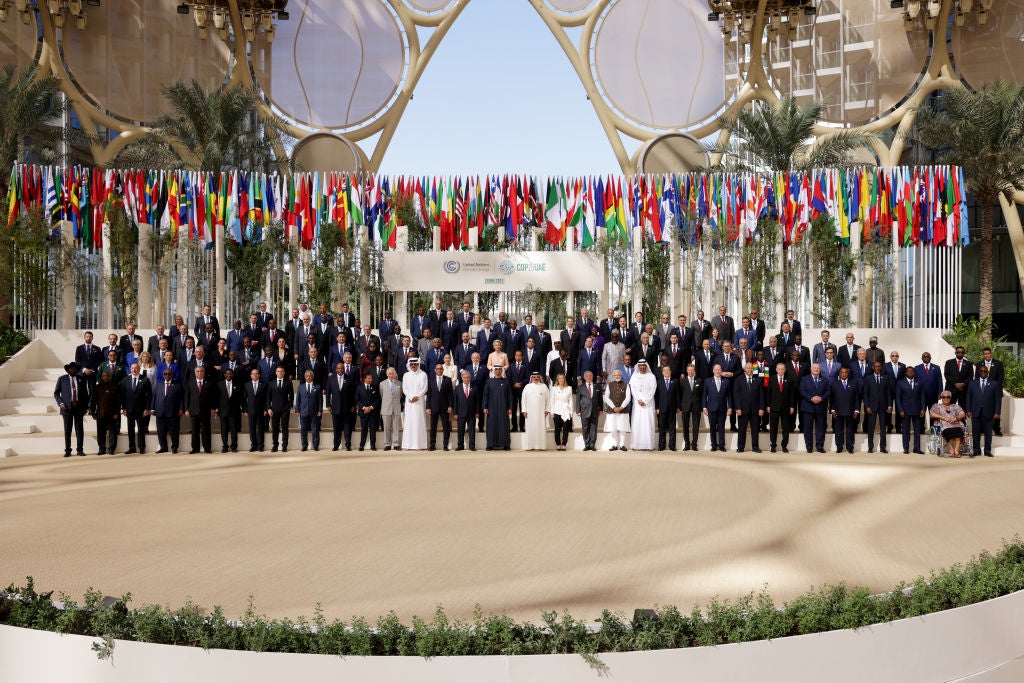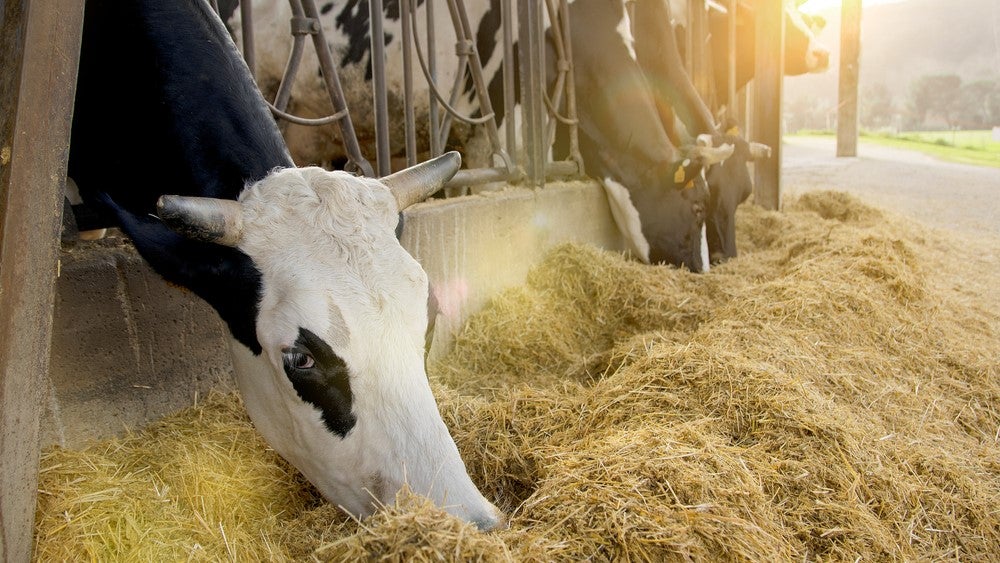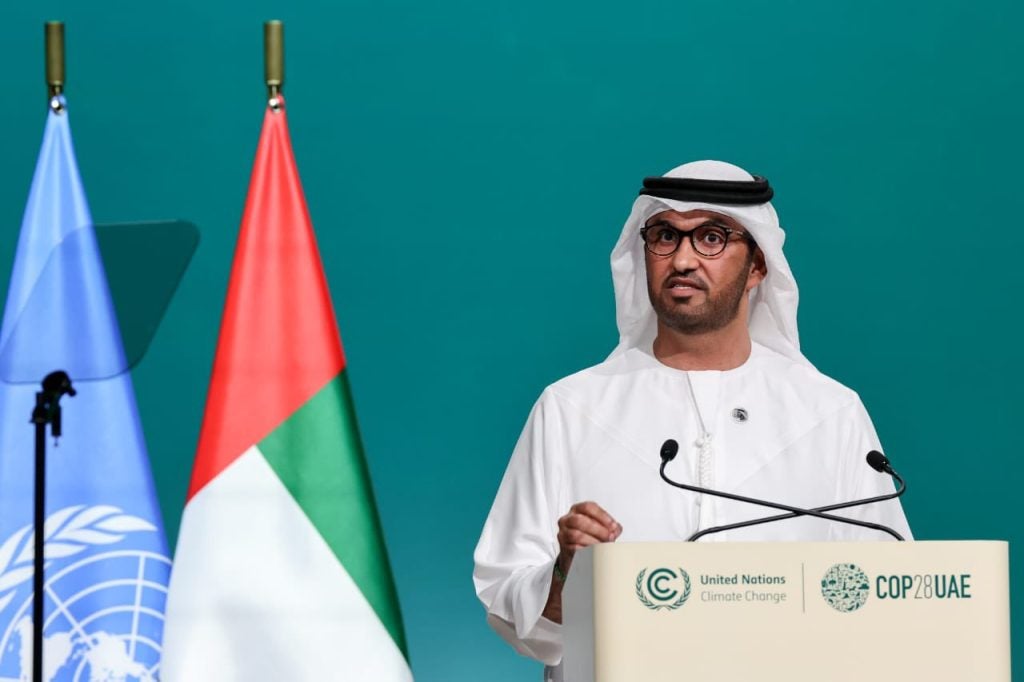More than 130 countries have signed the Leaders Declaration on Food Systems, Agriculture and Climate Action at COP28 in the UAE today (1 December), which for the first time marks a commitment to cut carbon emissions in the global food system.
The news was announced by Miriam Almheiri, UAE Minister of Climate Change and Environment, at the World Action Summit, which took place in Dubai.
In a statement at the event, Almheiri described the global commitment as “a milestone moment in history for food systems and agriculture”.
She added: “This declaration is there to help galvanise the political will needed from countries across the globe to transform our food systems in the face of climate change.”
The full list of countries to have signed has not yet been made clear by COP28 but are said to “represent a total estimated population of 5.718 billion people calculated using World Bank population figures”.
Reports from the BBC have suggested the US, China and Brazil are among the countries involved. The EU Commission sent a request to the European Council of Ministers to approve its signing of the Declaration earlier in November.
Global leaders from Indonesia, Italy, Samoa and the US, led the "special session" of the World Action Summit.
The UN Food and Agriculture Organization (FAO) supported the development of the declaration, which it said would encourage “scaling up resilience efforts, promoting food security, and supporting workers in the sector”.
As part of the agreement, signatories are said to have promised “to revisit policies, increase access to finance, accelerate innovations and strengthen the multilateral trading system”, the FAO said.
It added a “collaboration and progress review” is expected to occur at COP29, “with ongoing commitment” due to continue “beyond 2025”.
FAO calls for financial support for agri-food producers
Also occurring at COP28 today was the release of a new report from the FAO, which called for a boost in financing in order to tackle the growing loss and damage of the agrifood sector coming as a result of climate change.
From its assessment of Nationally Determined Contributions (NDCs), the FAO found 35% of present climate action targets mention “loss and damage”. The nations that mention “loss and damage” in their reporting also noted that agriculture had been “the single most impacted sector overall”.
The report launch follows the deal to create a Loss and Damage Fund, agreed by world leaders on day one of COP28.
Commenting on the overall declaration, Jennifer Morris, CEO of environmental NGO The Nature Conservancy said: “We applaud the COP28 presidency and all 134 signatories for taking this important step to integrate food systems into the climate action.”
“[It] acknowledges, at the highest levels, that by integrating food and agriculture into key climate goals and scaling up finance and science-backed solutions, we can ensure there is real tangible action toward reaching the Paris Agreement Goals as well as halting biodiversity and nature loss.”
While a step forward, Morris stressed the declaration “will only be meaningful if we see follow-through on the ground”,
She added: “The 134 countries who have committed to the Declaration will need to work with every actor in the food system to deliver real lasting change, as well as immediately phase out fossil fuel use both within and outside of the food economy.
"By ensuring that farmers and producers are at the centre of the solution, food systems can be part of the climate solution, and support farming communities and livelihoods. Only then will we see the results needed to meet this challenge.”
Food systems awareness group ProVeg International was “really pleased” by the news, adding it hoped it would encourage greater focus on tackling the emissions that come from livestock production.
“The food system emits a third of global greenhouse gases and most of that comes from animal agriculture. So we now hope signatories to the declaration will look at ways to promote the production and consumption of plant-based, climate-friendly food to honour the goals of the declaration,” said Raphaël Podselver, director of UN affairs at ProVeg International.
[Link src="https://www.just-food.com/features/food-finally-on-radar-as-cop28-gets-underway/" title="Spotlight: Food finally on radar as COP28 gets underway" font-size="20px"]Dairy giant Danone has also welcomed the declaration, with CEO Antoine de Saint-Affrique praising “food being on the top table for the first time”.
The company is one of 26 organisations COP28 named today as “collectively working to transition 160 million hectares of land” to regenerative agriculture by 2030. Other food majors mentioned include Nestlé, PepsiCo, ADM, Unilever, Sysco and Olam Food Ingredients.
In a statement, de Saint-Affrique added: “Solutions, like regenerative agriculture, to reduce those numbers already exist but they must be scaled as fast as we can. That cannot happen without greater financing. In 2022, food systems only received 4.3% of climate finance despite generating 1/3 of emissions.
“Public-private partnerships must work harder to unlock the financing farmers need to spearhead the transition. As part of the Global Methane Hub [GMH], $200m of funding has already been raised for new technologies for less carbon intensive farming methods. It can be done.”
Danone announced plans to fund the GMH’s emissions reduction accelerator last month.
“This declaration is a signal to all actors to scale financing, collaboration and policies so our food systems are more secure, equitable and better for the planet,” de Saint-Affrique said.
A company spokesperson told Just Food a “supporting action package” from supporting businesses would be released this coming Monday.


